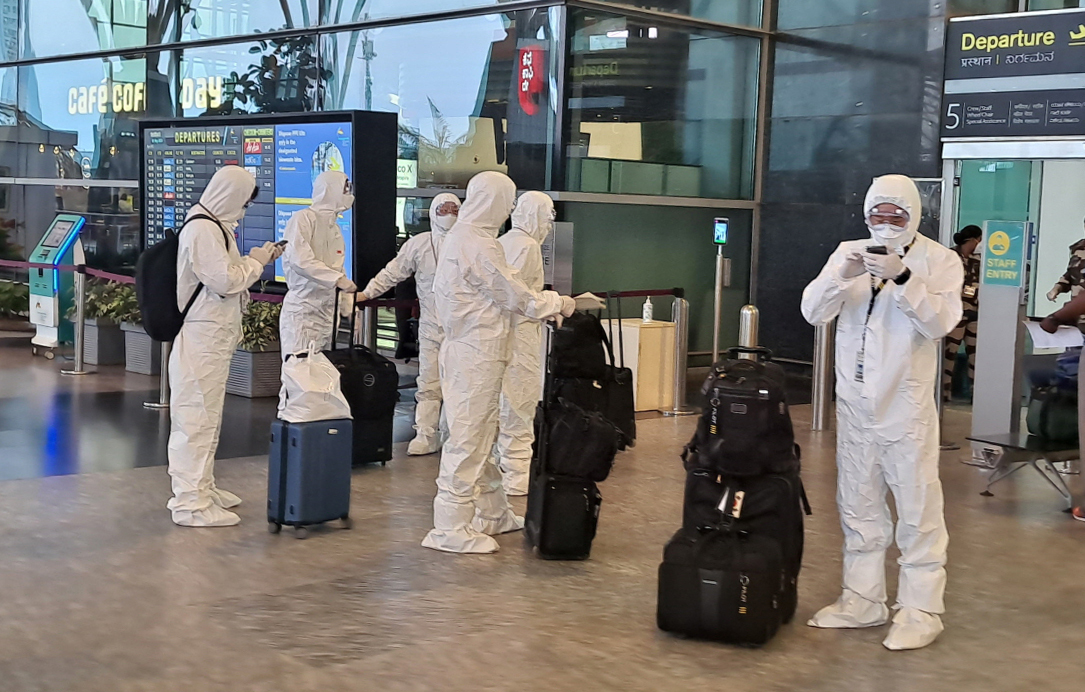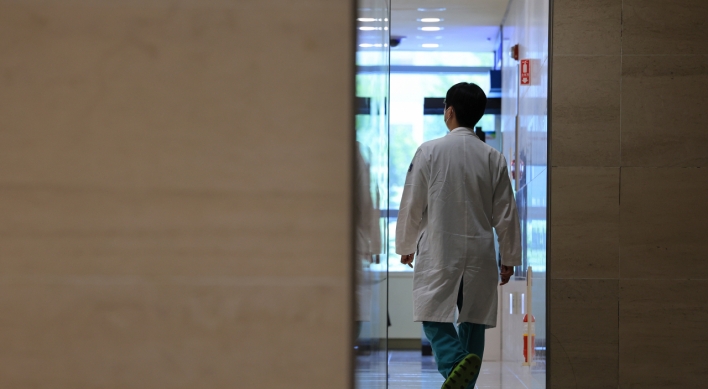Cases of ‘worrisome’ COVID-19 variants soar in Ulsan
Korea’s fight against the pandemic is strained by fresh opponents: variants
By Kim ArinPublished : May 9, 2021 - 18:01

Korean health authorities said Sunday variants of the virus causing COVID-19 -- namely, the variants first identified in the UK and California -- are behind the recent surge in Ulsan, and now possibly neighboring Busan.
The Ministry of Health and Welfare’s spokesperson Son Young-rae told reporters Sunday that although case rates have declined over the past week by 5.4 percent compared to the week before, variants accounted for as many as 15 percent of all newly diagnosed cases.
Korea on Sunday reported 564 new COVID-19 cases, down by 137 from 701 a day prior, according to the official statistics. Fewer tests being carried out during the weekend was the reason for the drop in case count, Son said. The cumulative case tally now stands at 127,309.
Son noted that there are “signs cases are beginning to plateau in Korea, just as new outbreaks are flaring up in the world, especially in Asia.”
“It’s too early to tell if cases will continue to plateau, but Korea is holding up fairly well,” he said.
Jeong Eun-kyeong, the chief of the Korea Disease Control and Prevention Agency, said in a press briefing earlier this week that the recent outbreaks in Ulsan and Busan and the rest of South Gyeongsang Province were tied to the variants detected in the UK and California.
Ulsan saw 772 patients confirmed with COVID-19 in the month of April, and more than 60 percent of them were infected by variants. The sudden surge over the past month alone has trumped the city’s total number of patients counted from the beginning of the pandemic until March.
Jeong said the climb in variant cases in Ulsan and the surrounding areas was “alarming.” In Seoul, which has been Korea’s pandemic epicenter since last spring, the number of variant cases accounts for just a third of the figure reported in Ulsan.
The national health agency’s contact tracers believe it took about two months for the UK variant, which the World Health Organization has labeled a variant of concern, to take hold in Ulsan. The city detected its first official cases of the variant on March 8 among some 40 funeral attendants. The source of the variant outbreak remains “untraceable.”
In response, Ulsan authorities on Wednesday ordered owners and employees of contagion-prone businesses such as nightclubs to get tested over the next two weeks. The curfew for such businesses has been moved to 9 p.m. from 10 p.m.
The variants circulating through communities in the southeastern province are more contagious than earlier forms of the virus, and may be associated with the worst outcomes, according to virologist Dr. Paik Soon-young of Catholic University of Korea.
Paik said it is “just a matter of time” before the UK variant, which is now one of the most common strains around the world, becomes dominant here. The variant from California was “more worrisome” because of its capacity to weaken the effectiveness of treatments and vaccines.
Infectious disease specialist Dr. Kim Woo-joo of Korea University Medical Center called for more vigorous testing as variant-driven infections gain momentum across the country.
“We’re only analyzing a small percentage of positive tests for variants, and oftentimes only in specific populations, when they are probably circulating more broadly in communities,” he said.
Kim said stepping up screening of arriving passengers from virus hot spots was a “key line of defense” as borders are kept open. Not all passengers are provided hotels or other special accommodations for their post-travel quarantine, leaving some with the chance to mingle with family or others as they self-quarantine at home or other places not overseen by authorities, he pointed out.
Health authorities are not considering stricter entry rules at the moment. Son of the Health Ministry said travel restrictions beyond the 14-day mandatory quarantine were not only ineffective, but also would hurt the economy.
So far vaccination rates are still not high enough to disrupt the spread of the disease in the country, with roughly 7 percent of the population -- about 4 million people -- having received at least a single dose.
Korea is currently ranked 35th among Organization for Economic Cooperation and Development member states for most vaccinations, ahead of only New Zealand and Japan, according to a University of Oxford project Our World in Data.
From Monday, people aged 65-69 can make appointments for their first vaccine dose. The first-dose appointment scheduling for people in the 70-74 age group began three days ago. Due to supply issues, vaccinations of first doses have been pushed back until May 27, as higher priority is given to administering second doses over the period.
By Kim Arin (arin@heraldcorp.com)








![[Kim Seong-kon] Democracy and the future of South Korea](http://res.heraldm.com/phpwas/restmb_idxmake.php?idx=644&simg=/content/image/2024/04/16/20240416050802_0.jpg&u=)










![[Today’s K-pop] Zico drops snippet of collaboration with Jennie](http://res.heraldm.com/phpwas/restmb_idxmake.php?idx=642&simg=/content/image/2024/04/18/20240418050702_0.jpg&u=)